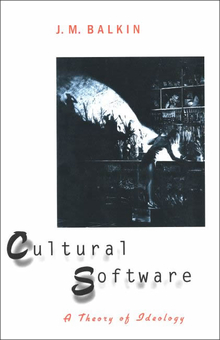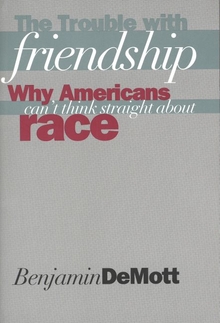Cultural Software
WARNING
You are viewing an older version of the Yalebooks website. Please visit out new website with more updated information and a better user experience: https://www.yalebooks.com
A Theory of Ideology
J.M. Balkin
Cultural evolution occurs through the transmission of cultural information and know-how—"cultural software"—in human minds, Balkin says. Individuals embody cultural software and spread it to others through communication and social learning. Ideology, the author contends, is neither a special nor a pathological form of thought but an ordinary product of the evolution of cultural software. Because cultural understanding is a patchwork of older imperfect tools that are continually adapted to solve new problems, human understanding is partly adequate and partly inadequate to the pursuit of justice. Balkin presents numerous examples that illuminate the sources of ideological effects and their contributions to injustice. He also enters the current debate over multiculturalism, applying his theory to problems of mutual understanding between people who hold different worldviews. He argues that cultural understanding presupposes transcendent ideals and shows how both ideological analysis of others and ideological self-criticism are possible.
"A brilliant and daring job of examining law in the light of new thought in the human sciences and vice versa. This is contemporary legal scholarship at its most thoughtful."—Jerome Bruner, Research Professor of Psychology at New York University and Senior Research Fellow in Law at New York University School of Law.
"After 250 years of writing about ideology, it is difficult to have something new to say that advances our understanding of this elusive concept, and yet Cultural Software: A Theory of Ideology by J.M. Balkin manages to do just that. . . . Cultural Software is a remarkable work that will be usefully read by a broad audience."—Susan Silbey, American Journal of Sociology
"Balkin takes the hot button words of current intellectual debate—culture, ideology, transcendence, pragmatism, historicism—and manages the considerable feat of making them usable again. He avoids final judgment while at the same time redeeming the vocabulary of final judgment so that it is once again available to those who have learned the lessons of various postmodernisms. An impressive and truly helpful book."—Stanley Fish, Duke University
"Balkin argues ingeniously that meme theory replaces more familiar critical theories of ideology, because it alone explains how people come to believe the things they believe, without reference to dubious assumptions about ‘false consciousness’ or ‘hegemony.’ Once we can understand this, we can act to change cultural beliefs for the better. . . . [Balkin] writes with lucid balance. . . . Balkin’s account is the most nuanced and convincing on the question of what we actually gain from meme theory."—Mark Kingwell, Harper's
"Balkin’s book is intelligent and extremely well crafted. Not the least of his accomplishments is a wonderfully clear presentation of the major strands of postmodern thought. Theories of social psychology, narrative, semiotics, metaphor, and metonym are discussed sympathetically but also sensibly and in understandable terms. For anyone interested in intelligible discussion of the work of Elster, Ricouer, Geertz, Goffman, Chomsky, Levi-Strauss, Foucault, and the like, this book is an excellent source."—Emily Sherwin, Philosophy in Review
"Balkin's book is a path-breaking effort to rethink legal critique using these biological and cybernetic models; the scope of its ambition and the subtlety of its execution are likely to make it a definitive work."—David Charny, University of Michigan Law Review
Publication Date: June 1, 2002








